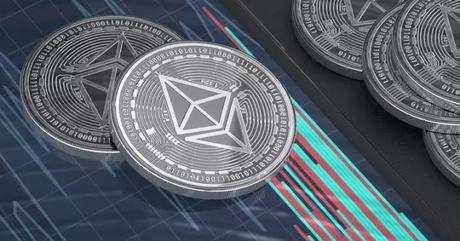
Over the next few months, Ethereum still has lots of issues that I think will hurt its long-term potential as a layer 1 blockchain. And if you’re looking to jump in and invest in ethereum or any other cryptocurrency, you should understand these issues to avoid getting rekt and losing all your money. So read the complete article or risk losing your money forever.
Reason #1: Gas fees
If you’ve ever actually tried to use ethereum you know EXACTLY what I'm talking about. Gas fees are too high and price out the average user. $100 or more per transaction is not financially feasible for the everyday person.
I have a relatively large portfolio and the gas fees still pose a challenge for me, someone who is already relatively financially free. So how can the average person making 50k a year, afford $1-200 per transaction? Newsflash, they can’t.
And all the hopium in the world about ethereum being the future won't change that. In its current state, nobody would accept ETH as the standard for processing transactions. The fees are too out of control and the end-user has to pay them. Most people who holdeth, have never used it.
They just bought it on an exchange like coinbase or Robinhood hoping for the price to the moon. They’ve never used it on a DEX, they’ve never used it to trade NFTs, and they’ve certainly never used it to deploy contracts on the blockchain A huge use case for ETH is NFTs, and trading, minting, or doing anything with NFTs on ETH exposes how broken ETH is at the moment.
The only time you get reasonable gas fees are between 1 and 3 am which just goes to show that it can’t handle mass adoption and tons of people using it at once And even then gas fees are still high and out of control
Reason #2: ETH 2.0 is harder than you think.
I worked at a software company in my past life, and while I don’t code, I have a basic understanding of how software development works. And the biggest problem with ETH 2.0, is that in order to upgrade from its current state, to 2.0 they have to update and undo a year's worth of code by building new code on top of it, which makes things incredibly difficult.
Imagine you baked a cake, but now you wanna change the recipe, but the only way you could do it was by adding new ingredients to your already baked cake. You can’t go back and take the ingredients out. So you have to add new ones that counteract and undo the ingredients you already have in there.
This complicates the process and can produce unintended consequences in the code. Software development is hard. And trying to change what’s already built is not only difficult, it creates unintended consequences down the line.
They have to undo the current programming and replace it with new programming WITHOUT messing anything up It’s like when there’s an update to your favorite video game.
Every time there’s an update to Call of Duty, it fixes old bugs and provides new features, but all the new code they developed introduces NEW bugs and NEW issues to fix, that’s why there are constant never-ending updates.
Every change you make to software produces an unintended change that you have to fix. This is why other ethereum competitors have been able to build faster other smart contract platforms with lower gas fees and faster transaction speeds. Because they can build the new software correctly from the start without all the old code to complicate things.
Disclaimer: This is an oversimplification of how software development works but hopefully it helps you get the gist of the big problem with ETH 2.0 and why it’s taken so long.
Reason #3: Slow development
Another issue with ETH is that it’s taken years for them to get ETH 2.0 while other smart contract projects have launched with lower gas fees and higher transaction speeds that work TODAY.
Vitalik himself has said ETH in its current state literally cannot handle mass adoption which is what it’s supposed to be used for: “He admitted that it is not yet the layer-one system that is ready for direct mass adoption.
The co-founder reaffirmed the need for layer-two scaling solutions and reduced transaction fees.” Now all of this being said, is Ethereum a good investment? Probably. Good investment and good project/technology are not the same things.
One of the best investments of 2020 and 2021 was Dogecoin and Shiba Inu. Projects with no utility or groundbreaking technology, but were great investments that would multiply your money. Will ETH go up in the future and perhaps flip bitcoin? Who knows, maybe.
But in its current state, it’s not usable for large adoption and scalability is a real issue. I’m cautiously optimistic about ETH 2.0 and I think ETH has a long-term future but I’m also closely watching and invested in other smart contract platforms. So always do your own research, don’t believe the hype, and put yourself in a position to stack that paper.

